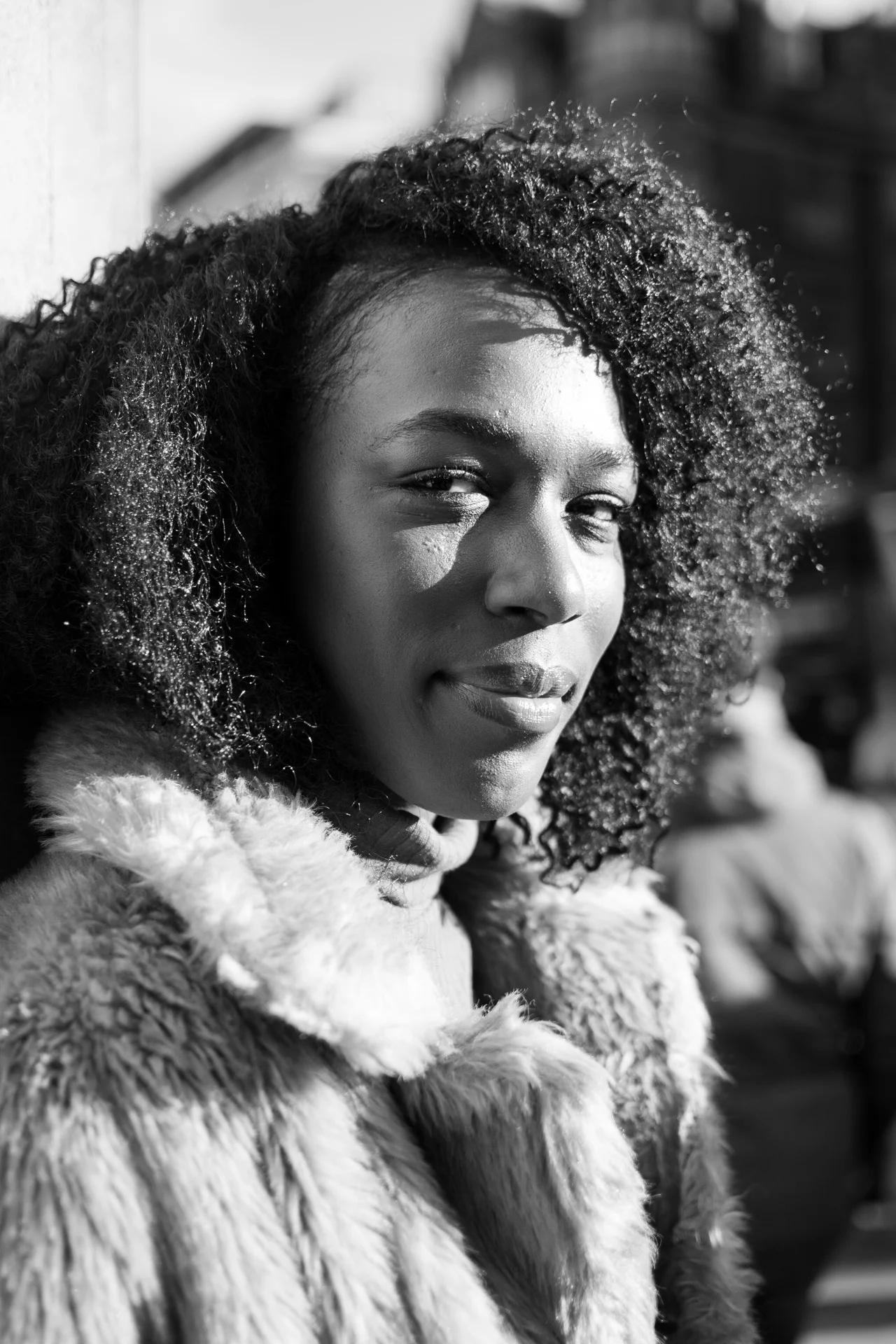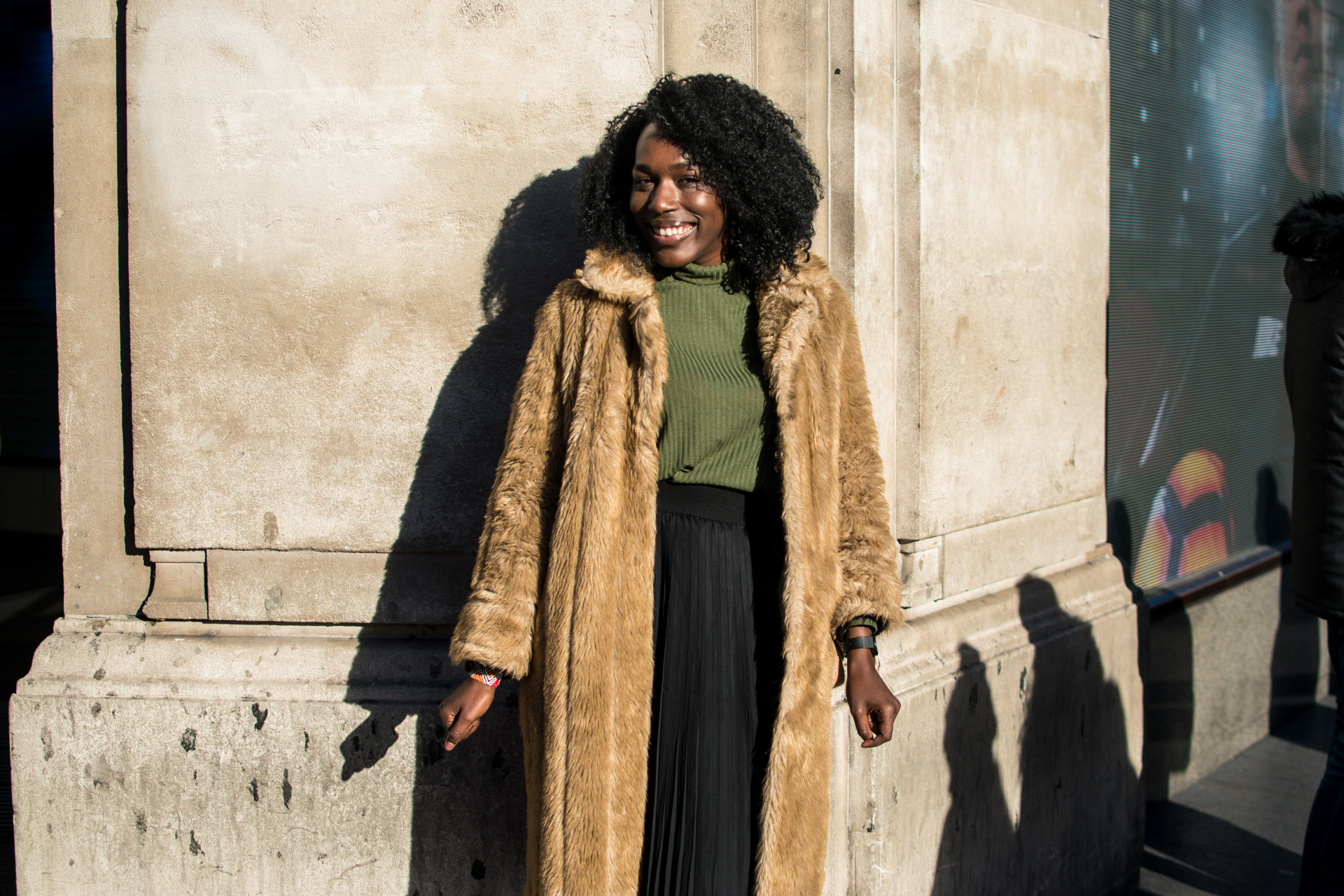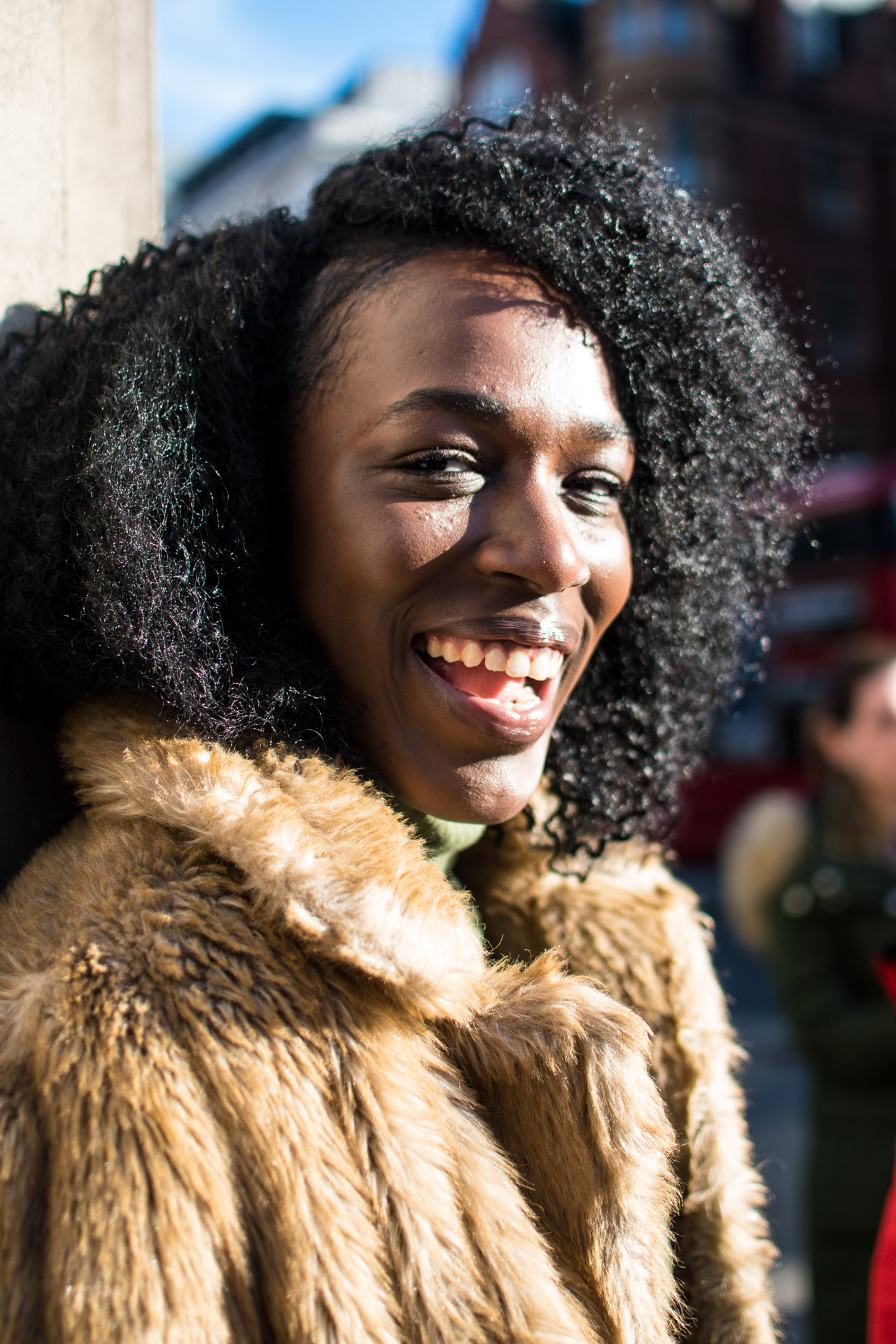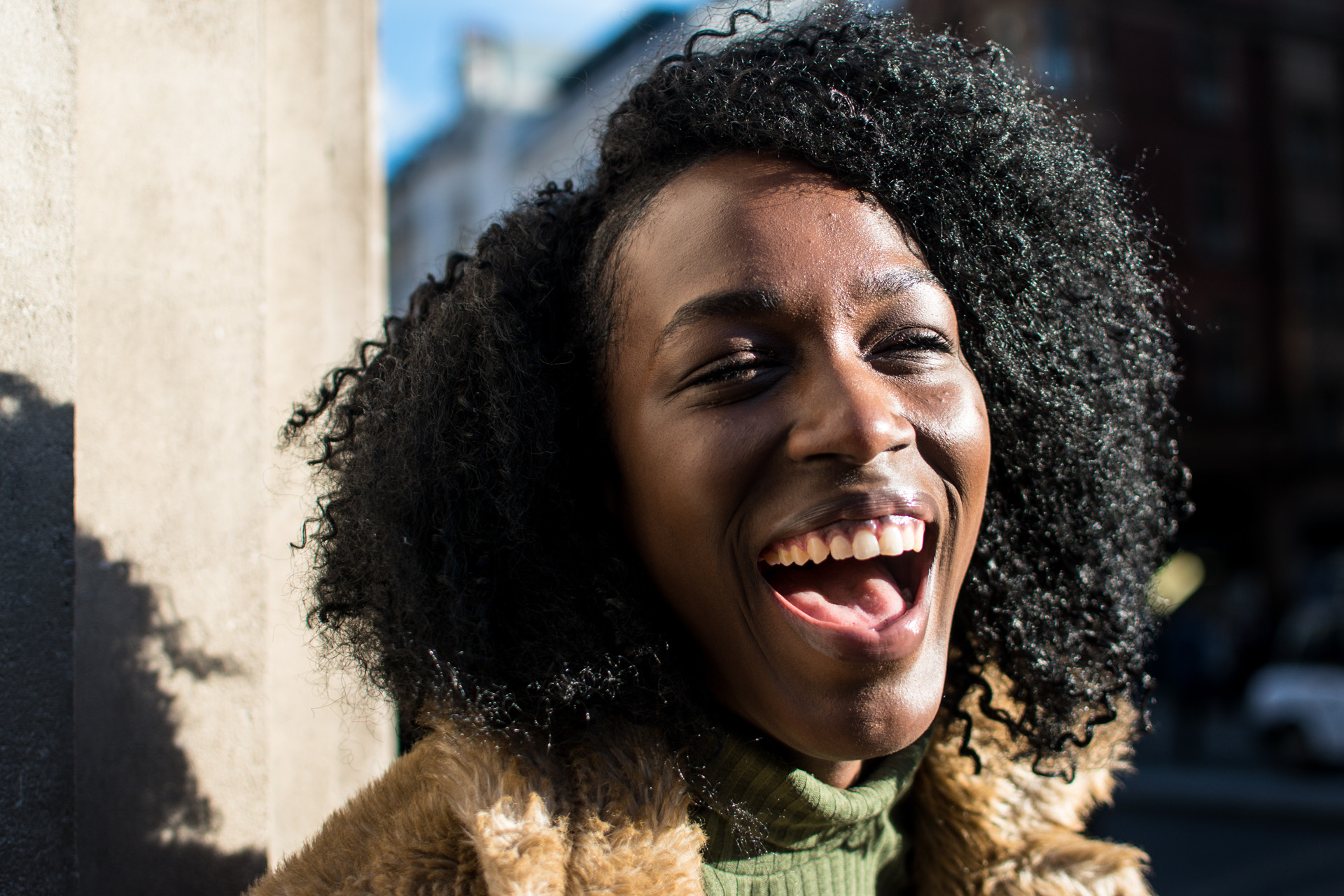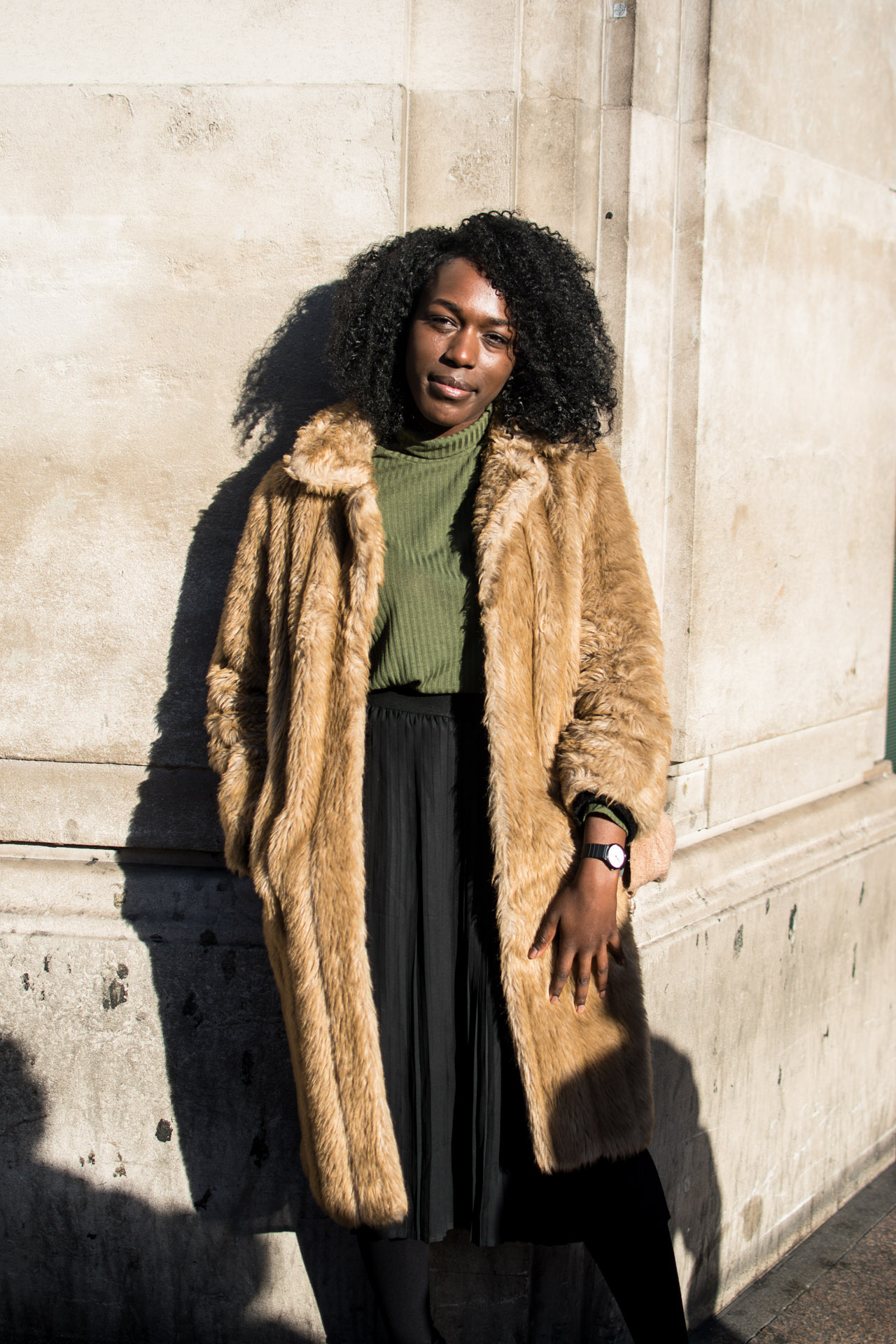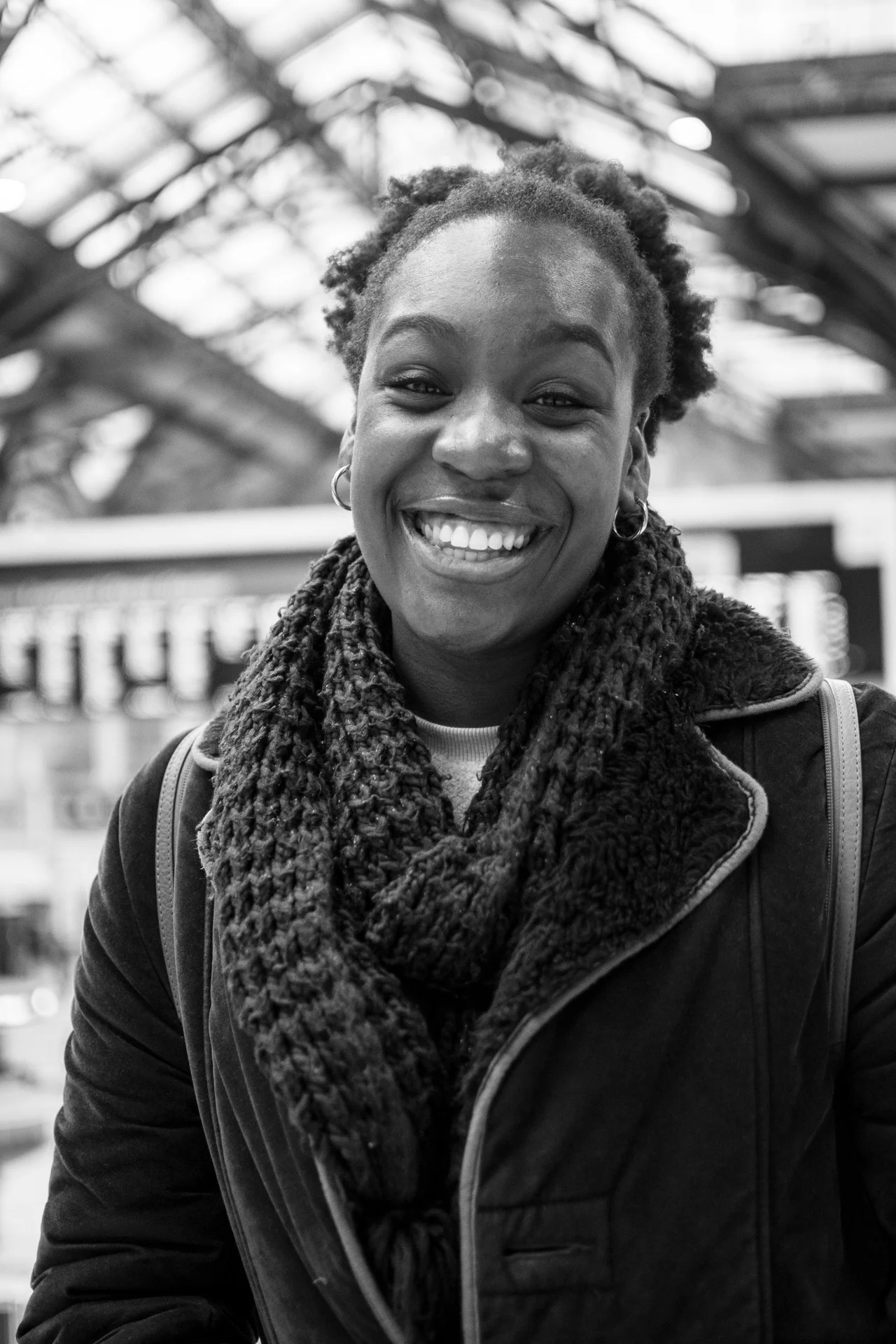Hannah
Hannah, 25
Nigerian ethnicity: Yoruba
City/County grew up in: London
City/County of residence: London
*full audio below
Describe your heritage
I am a Black British Nigerian, born to Nigerian-born parents.
What to you, makes you Black British Nigerian? How do you define it?
It’s such a strong identity and I’ve obviously heard of each one, but just not put together. So it’s very interesting, but I can only compare it with layers, almost like an onion. So there’s being Black, which is obviously very visible, which is very intrinsic, and is a reflection of my experiences that I face on a day to day. There’s being British which is the passport that I have or the accent that I have, my surrounding that I grew up in and the things that I celebrate as a British citizen (the Royal Wedding being one that I take very seriously). Then there’s being Nigerian which is my parent’s mother-tongue, the language that I hear pretty much every day, the music that I’m obsessed with, the heritage that I’m very proud of and feel deeply connected to. So putting all the three in one is just a very very eye-opening experience, because being Black, being British and being Nigerian just comes with so many different lenses of how I see life on a day-to-day basis.
What challenges do you/have you faced that relate to your identity as a Black British Nigerian?
I think the main challenge I would say is being Black. I feel like personally I haven’t been not aware of race, it’s something that you hear about, but race linking to racism is something that was always historical for me. It’s just a shame that over recent years, in the 21st century, it’s being spoken about more and more because of the bad things that have come out of it.
Being British is almost a privilege. The more I travel around the world and just see the advantages that you have as a British citizen; democracy – if I wanted to sign a petition for people to be able to wear pink wigs into Parliament – if a 100,000 people signed that, it would be looked at in the Houses of Parliament, that’s mad. Try that in Nigeria, you’ll get laughed at. So democracy is something that I never take for granted here, the fact that you can start something from nothing, the fact that you have different ways to live out your day-to-day as a British citizen.
As a Nigerian, the issue is surviving as a Nigerian in Nigeria. Having family from there like my cousins, and them just telling me how difficult it is trying to make change. It’s almost as if the issues faced as a British person is almost polar opposite to the issues faced as a Nigerian. Which is very interesting. But the most issues faced overall is being a Black person I would say.
What do you love about being Black British Nigerian?
I love the freedom of expression in all.
There’s the Black aspect – just being very unapologetic and being very free with how I express myself, because to be Black is more than just heritage. For me it’s parents, and it’s owning it as well. Owning my beautiful dark skin. Being British…again I think it just adds a lot to my character, my bubbliness. Speaking to people from all different levels within my industry (so quite a lot of people within my industry are British), but where I currently work I work in the African department so I’m connecting with a lot more people on the continent, and being Nigerian I think that just overrides all of it. It’s my upbringing, it’s the family parties, it’s going back home, it’s doing a film with my grandma who’s in Nigeria telling us about what life was like for her growing up. It’s the food, it’s the music, it’s the shared experiences that many other Black British Nigerians and myself can relate to. It’s being able to identify if someone is Nigerian or not literally just by their name or surname and just finding that common thing that we share. So I think that being Nigerian is one of the best things ever really.
Do you think this country values your identity?
It kind of depends, it really depends. Ooh that’s a hard one. One random thing I think of because that’s such an interesting question is, I’m going to say 2013, 2014, when the news came out about Bring Back Our Girls in Nigeria, and a friend and I had gone outside of the Nigerian embassy in central London to protest. We were free to protest, lots of news organisations came around and were interviewing us and etc, and I don’t know why but I just felt like us being allowed to do that, to occupy that space and to protest that – not that there was necessarily a strong level of care – but it was freedom to do that because it’s obviously a very big thing that shook the world. It was a shocking headline and it almost showed a sense of unity knowing that even though people that are in charge of Britain may not show as much care, there is a strong Nigerian community slash diaspora that do care, and come together and do that. And the fact that they are from this country and care (I don’t really care so much about what those in charge of this country think) because we have the freedom to express ourselves, and to express and show care for the issues that matter to us as Black British Nigerians.
What does the future look like for Black British Nigerians - what are your hopes for us?
The hopes are just for us to occupy more spaces, to not be afraid of your heritage, to not listen to what other people say. I’m a well-travelled person, I don’t come into an African country with a fear of x y and z, you can only experience something if you see it for yourself. If you have a close connection with your motherland and you haven’t been since you were 5, ask yourself why. Is it because of what you’ve seen in the headlines, is it because you’re scared? And I think just hold on to that, that feeling that makes you want to go back home and go there. You’ll only be able to see it for yourself.
The stuff I’ve heard from people is so dumb and I’ve come to the conclusion that with every stupid question that I get asked about Nigeria, I’m going to respond with a stupid answer. I have been to Nigeria at least 6 times in the past year, work family, leisure, etc. I have not been kidnapped not once, no problem, no wahala. I’ve not been killed…none of that. So for every dumb question that I get asked, I’m going to respond with a dumb answer. That’s the end of that. If you want to see it for yourself, you go. I have a travel Instagram page where I provide tips of things you can do in Nigeria, whether that’s the village, the city, as a tourist, or a person that’s working there. There are loads of Nigerian bloggers, we need to really open our eyes to the world.
And why would you be shocked that there is some wahala happening in a country that is the most populous country in Africa with a population of 200 million? Okay. It’s not going to be all roses, do you know what I mean? But it’s a country that people hold a lot of pride in; billionaires, diplomats, you name them, are living there, going back and forth doing their business etc. So if you’re really going to say you’re stuck, in your close-minded ways thinking that it is what the media tells you, then that’s your problem, it’s not mine. So that’s my advice. Go and find it for yourself and you only have one life. You don’t want to go through it having experiences of what other people have told you and what the media have told you. You should always tell your own stories because in the end that’s all your left with.
